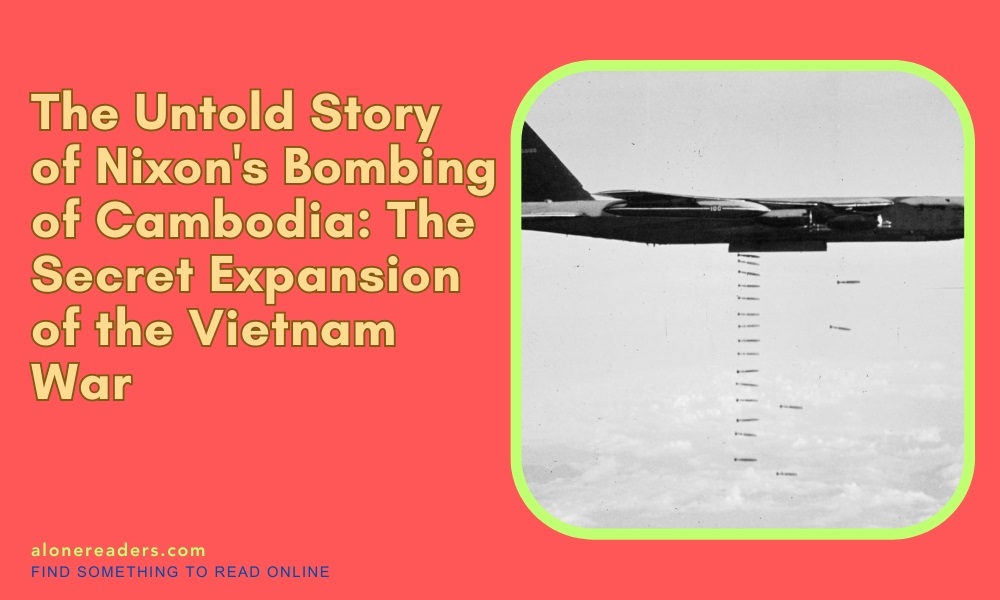
In the annals of American military history, few actions are as shrouded in secrecy and controversy as the bombing of Cambodia by the United States from 1969 to 1970. Orchestrated under the administration of President Richard Nixon, this campaign marked a significant and clandestine expansion of the Vietnam War, the ramifications of which reverberate to this day.
The decision to bomb Cambodia was rooted in the broader context of the Cold War and the domino theory, which held that the fall of one Southeast Asian nation to communism would inevitably lead to the fall of its neighbors. This geopolitical strategy led the U.S. to intensify its military involvement in Vietnam in an effort to contain the spread of communism. By 1969, the war in Vietnam was becoming increasingly unpopular in the United States, leading to widespread protests and calls for de-escalation. In this context, the Nixon administration sought a means to achieve a "peace with honor" and saw striking at enemy sanctuaries in neighboring Cambodia as a way to accelerate North Vietnam's willingness to negotiate.
The bombing campaign, code-named "Operation Menu," initially targeted the regions of Eastern Cambodia, where the People's Army of Vietnam (PAVN) and the Viet Cong had established bases used for attacks into South Vietnam. These sanctuaries, known as the "Ho Chi Minh trail," were crucial logistical hubs through which troops and supplies flowed. Nixon authorized the bombings as a strategy to disrupt these lines of communication and degrade the operational capacity of communist forces.
The scale of the bombing was immense. From March 1969 to May 1970, the U.S. dropped a staggering amount of ordnance on Cambodian soil, far exceeding the tonnage dropped on Japan during World War II. The secrecy of the campaign was such that not only was the American public kept in the dark, but records were manipulated to conceal the true extent and location of the bombings. Only a limited circle of U.S. military and government officials knew of the operation's existence.
The impact of the bombing on Cambodia was devastating. Thousands of Cambodians lost their lives, and millions were displaced from their homes. The rural landscape was radically altered, and the Cambodian economy, heavily reliant on agriculture, suffered as arable land was rendered unusable. Furthermore, the bombings destabilized the Cambodian government of Norodom Sihanouk, paving the way for the rise of the Khmer Rouge, a brutal regime that would later perpetrate the Cambodian genocide.
The secret bombings also had a profound impact on the American political landscape. When news of the campaign finally broke in 1973, it contributed to the growing distrust between the American public and the government. The revelations added fuel to the fire of anti-war sentiment, leading to further protests and a congressional backlash. In response, Congress passed the War Powers Act in 1973 to rein in the president's ability to conduct military operations without legislative approval.
Internationally, the bombing damaged the credibility of the United States. It strained relations with allies, undermined U.S. moral authority, and bolstered the narrative of American imperialism in developing nations. The violation of Cambodia's neutrality and the subsequent invasion in 1970 further complicated peace negotiations to end the Vietnam War, as North Vietnam's trust in American peace overtures diminished.
Historically, the bombing of Cambodia is often viewed through various lenses. Some argue that it was a necessary tactic to pressure North Vietnam into a peace agreement that ultimately led to the withdrawal of American forces in 1973. Others view it as an unwarranted extension of war into a neutral country, resulting in significant civilian casualties and contributing to regional instability.
Decades later, the legacy of Nixon's bombing of Cambodia remains a point of contention and reflection. It raises critical questions about the limits of military power, the responsibilities of global leadership, and the profound consequences of secretive governmental decisions. As such, it serves as a somber reminder of the complexities and tragic dimensions of war, particularly those fought in the shadows, away from public scrutiny and accountability. This hidden chapter of the Vietnam War not only shaped the course of Southeast Asian history but also offers enduring lessons for future military and political strategies in a globally interconnected world.